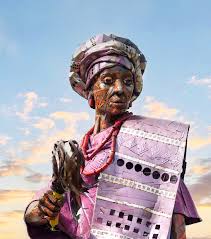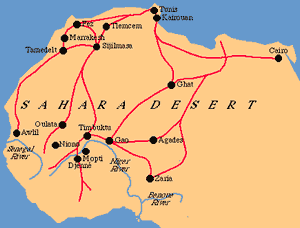Efunsetan Aniwura: The Woman Who Financed a City and Paid the Price of Power

Efunsetan Aniwura: The Woman Who Financed a City and Paid the Price of Power
Discover the story of Efunsetan Aniwura, the powerful Iyalode of Ibadan who bankrolled wars, built wealth, and fell to the laws of power.
When people talk about Ibadan, they usually start with size. The biggest city in West Africa. Endless brown roofs. The chaos of Bodija markets, Dugbe roundabouts, brown roofs, and amala joints at every corner. But long before the emergence of what we see now, Ibadan was already a city of power and ambition. And at the heart of that rise was one woman, a woman whose wealth stretched across kingdoms, whose name still echoes in folklore, and whose downfall is a perfect Yoruba case study for Robert Greene’s 48 Laws of Power. Her name? Efunsetan Aniwura.
Who Was Efunsetan Aniwura?
Born in the 1820s in Abeokuta, she was the daughter of Chief Ogunrin, a warlord from Egba Ikija, and her mother was from Ile-Ife. Her childhood was shaped by the marketplace, as she followed her mother to trade. Unlike many girls of her time, she viewed trade not just as a means of survival, but as a form of power.
Her name itself is loaded with meaning:
• Efunsetan. “The whiteness (chalk) that covers the earth” (efun = sacred white chalk, ṣe tán = spreads/has covered).
• Aniwura. “Owner of wealth.”
Put together: “The whiteness that covers the earth, owner of wealth.” Almost like a prophecy of what she would become. By the time she moved to Ibadan, she wasn’t just another trader. She was a force.
How She Built Wealth and Power in Ibadan
Let’s be clear: Efunsetan didn’t play small. She went all in.
• She owned massive farmlands with close to 2,000 slaves working them.
• She traded in tobacco, kola nuts, textiles, and cosmetics.
• Her products, like Kijipa cosmetics, reached markets as far as Porto-Novo, Badagry, Ikorodu, and even the Americas.
In modern terms? She was a multinational CEO. If Ibadan had a stock exchange back then, it’d have been listed number one.
Efunsetan Aniwura as the Financier of a Great City
Here’s the part of her story that deserves more spotlight: Efunsetan was Ibadan’s banker.
Ibadan in the 1800s wasn’t a peaceful suburb. It was a military city, ex-warriors from Oyo, Egba, and other Yoruba regions building a new power centre. And power meant war. Wars against Ijaye, Egba, Dahomey, and more.
Wars cost money. Armies don’t march without food, gunpowder, and weapons. And who had resources? Efunsetan Aniwura.
She provided supplies. She extended credit. She even lent weapons to Aare Latoosa, Ibadan’s feared military leader and warlord. Think about that: a woman, in a council of warrior men, not just attending but bankrolling the entire operation. That’s how central she was. With her money flowing, Ibadan grew into the Yoruba powerhouse it became. She wasn’t just the richest woman in Ibadan. She was the woman funding Ibadan itself.
Personal Tragedy and Harsh Leadership
But behind the empire was tragedy.
Her only daughter died in childbirth around 1860. For Efunsetan, who had pinned her hopes on that child, it was devastating. Some historians say that grief shaped her later leadership. She became stricter, harsher. In her household, she banned her slaves from getting pregnant or fathering children. Anyone who broke that rule faced brutal punishment, sometimes even execution.
It made her feared, but it also gave her a reputation for cruelty. Oral accounts claim she had more than 40 slaves executed. Still, cruelty alone didn’t bring her downfall. Plenty of Ibadan’s male warlords were cruel. Her real mistake was political.
Why She Fell: The 48 Laws of Power in Action
Robert Greene’s 48 Laws of Power begins with Law 1: Never Outshine the Master.
The logic is simple: if your influence grows so bright that your boss feels overshadowed, you’ve crossed a line you can’t uncross. That was exactly what happened to Efunsetan. By the 1860s, she wasn’t just a wealthy merchant. She was Iyalode of Ibadan, the highest chieftaincy title for women, giving her political power. She controlled the markets, financed wars, and lent weapons to the generals. She was everywhere, in everything.
And Aare Latoosa, Ibadan’s warlord, noticed. To him, Efunsetan wasn’t just a chief. She was a rival. And in the brutal world of 19th-century Ibadan politics, rivals didn’t last.
The Death of Efunsetan Aniwura
On May 1, 1874, Aare Latoosa officially stripped her of her Iyalode title. By June 30, she was dead. According to historical records, she was murdered in her sleep by two of her slaves. Oral traditions say her adopted son Kumuyilo was bribed by Latoosa to make it happen. Just like that, the chalk that was supposed to cover the earth was wiped away.
Lessons from Her Life for Today
Efunsetan Aniwura’s life is both a celebration and a warning. She remains one of the most powerful women in African history, yet her downfall shows the dangers of unchecked influence.
What can we learn?
1. Finance is Power. Long before “venture capitalists” or Wall Street bankers, Efunsetan proved that money is what moves armies and builds cities. She wasn’t just trading; she was nation-building.
2. Personal Grief Shapes Leadership. The loss of her only child made her rule harshly. Leaders are human, and personal pain often bleeds into public decisions.
3. Never Outshine the Master (48 Laws of Power, Law 1). No matter how valuable you are, if your power overshadows the man at the top, you’ve crossed into dangerous territory. Efunsetan’s wealth made Ibadan stronger, but it also made her too threatening for Latoosa to tolerate.
4. Legacy Outlives Tragedy. Today, her statue stands at Challenge Roundabout(Iyana Anfani) in Ibadan. Plays by Professor Akinwunmi Isola, films by Tunde Kelani, and oral poetry all keep her memory alive. Love her or hate her, she cannot be forgotten.
Final Word
Efunsetan Aniwura wasn’t just Ibadan’s richest woman. She was its financier, its power broker, its silent banker. She turned wealth into influence, and influence into political clout. But power is a double-edged sword. The same fortune that made her indispensable also made her dangerous in the eyes of Ibadan’s overlord. Her story reminds us that greatness is not just about what you build, but how you manage those above you. As Robert Greene warned: Never outshine the master. Efunsetan did. And history recorded both her brilliance and her fall.


